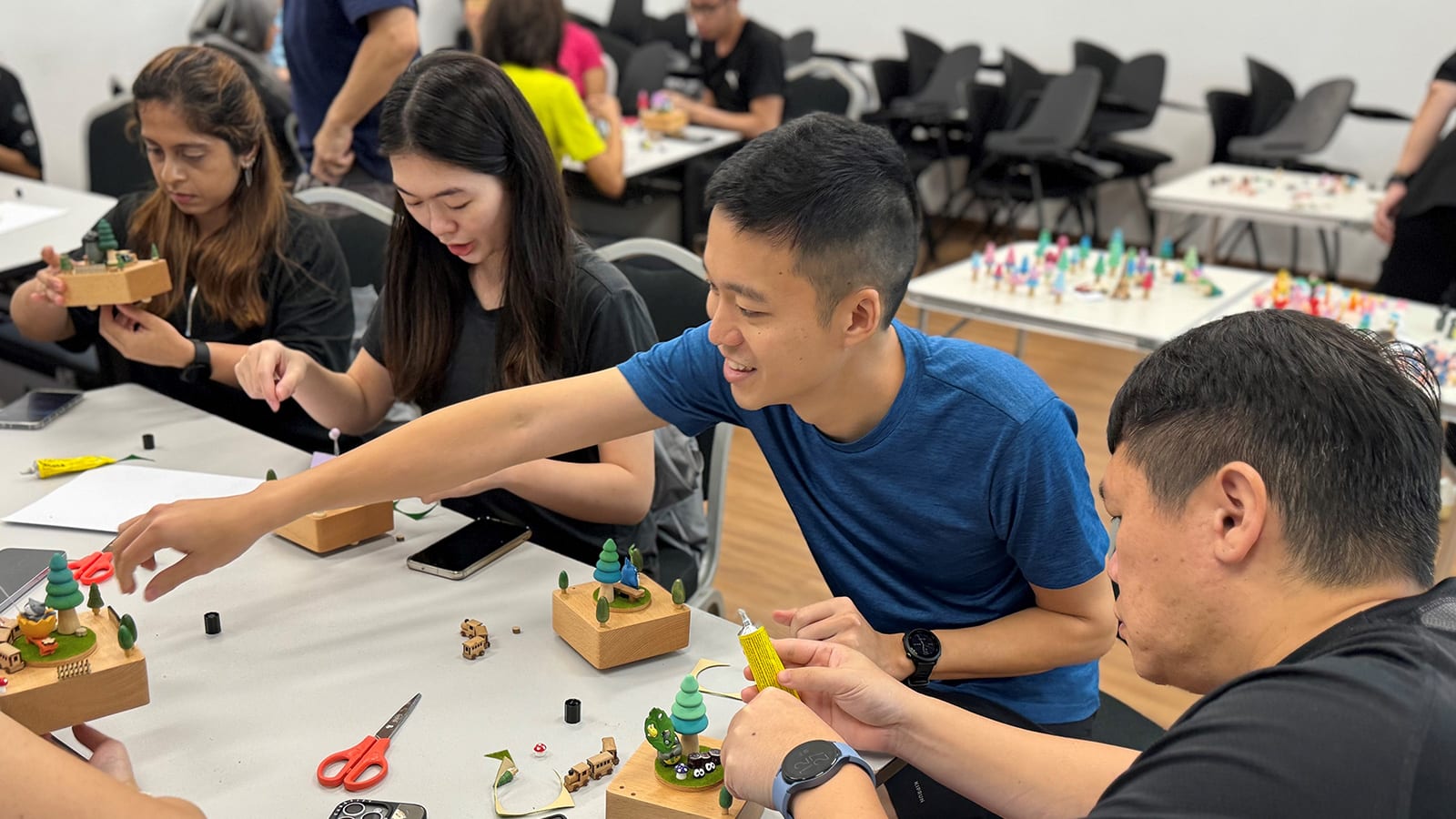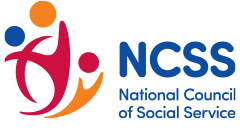At mental health charity Resilience Collective, Head of Programmes Mr Justin Loo often asks potential hires: “Tell us about a time when someone came to you with a mental health challenge. How did you respond?”
This question assesses a candidate’s comfort level with discussing mental health, a crucial aspect of Resilience Collective’s workplace culture. The organisation runs initiatives such as workshops and support groups that are founded on the principles of peer support, with the objective to support the mental health recovery of young adults.
Similarly, many businesses in Singapore are adopting inclusive hiring practices to support persons recovering from mental health conditions. To encourage these efforts, the National Council of Social Service (NCSS) has partnered with employment support agencies that help companies create inclusive workplaces.

Creating inclusive workplaces is part of NCSS’s nationwide Beyond the Label (BTL) movement, which addresses the challenge of societal stigma against persons with mental health conditions, in line with Singapore’s National Mental Health & Well-being Strategy.
Although findings from the NCSS Quality of Life study conducted in 2016 identified social inclusion as a key factor in supporting sustainable recovery from mental health conditions, the NCSS Study on Attitudes Towards Persons with Mental Health Conditions in Singapore the following year revealed that misperceptions and stigma were major barriers to fostering social inclusion.
Inclusive workplaces are where persons with mental health conditions can contribute, connect with others and grow in confidence — putting them further along the path of recovery.
SUPPORTING RECOVERY
Employment support agencies play a vital role in helping individuals recovering from mental health conditions reintegrate into the workforce.
SACS INTEGRATED EMPLOYMENT SERVICES
The Singapore Anglican Community Services (SACS) helps reintegrate persons-in-recovery into the workforce through vocational training, career counselling and job placement
SAMH MINDSET LEARNING HUB
The Singapore Association for Mental Health (SAMH) provides training and employment placement for persons-in-recovery, particularly in the cleaning, food and beverage, and retail industries
IMH JOB CLUB
The Institute of Mental Health (IMH) Job Club is a one-stop centre that assists persons-in-recovery with their employment needs.
To ensure smooth transitions, these services provide ongoing support and job coaching to both new hires and their employers.
LEADING OPEN DIALOGUES IN THE WORKPLACE
Beyond assessing potential hires, introducing the topic of mental health during interviews reinforces Resilience Collective’s commitment to an inclusive workplace culture, explained Mr Loo. “We’re very aware that this culture isn’t something that you establish once and then have forever – it’s very fragile,” he noted. “We start by telling new team members what we value, and when appropriate, we share our own mental health challenges.”
Far from overwhelming new hires, an effective and carefully planned sharing session by leaders sets the tone for similar discussions and helps peers to conquer their fears about how being open about their mental health conditions may impact their careers. “Mental health challenges are personal and make us hugely vulnerable,” said Mr Loo. “You worry about whether people will dismiss you, make you feel dumb or try to move on quickly. When leadership shares first, it sets a supportive tone and neutralises a lot of the worries and risks that peers have about coming forward.”










EMPOWERING PEERS FOR ON-THE-GROUND SUPPORT
Resilience Collective has built flexibility into its operations with a system that enables all staff, including peers with mental health conditions, to delegate certain tasks or request deadline extensions, while remaining accountable in their roles. “This builds confidence in recovery,” explained Mr Loo. “If there’s no structure – where you don’t know who’s covering your work or who to ask for help – it becomes hard for supervisors to provide flexibility. Employees knowing they can ask for help creates clarity and empowerment.”
The Singapore Prison Service (SPS) is another organisation that has integrated mental health support into its workplace operations, ensuring employees’ psychological and mental well-being.
Ms Rashida Mohamed Zain, Senior Assistant Director and Lead Psychologist of the Psychological and Correctional Rehabilitation Division at SPS, shared that prison officers —known as Captains of Lives (COL) — receive support at all levels when they need mental health support. “It’s not just their immediate supervisors,” she added. “Leaders check whether they’re receiving support, and our Caring Action in Response to Emergencies (CARE) officers as well as peer supporters also check in when they’re unwell. Those seeking help receive it from multiple sources, including psychological support from our branch if needed.”
CARE Officers at SPS are prison officers who are trained to provide psychological first aid. They regularly attend upskilling sessions to ensure they remain well-equipped with the necessary mental health awareness and capabilities.


ENHANCING PRODUCTIVITY THROUGH AWARENESS
SPS recognises the importance of staff mental wellness and the need for self-care, for them to be able to carry out their duties as COLs effectively. By taking a clear stand on mental health’s importance and offering structured workplace support, SPS has helped its employees maintain good mental wellness. A 2022 Home Team study found 81 per cent of SPS staff considered themselves to be mentally resilient
In recent years, the Psychological and Correctional Rehabilitation Division (PCRD) at SPS has expanded its publicity efforts beyond email broadcasts and physical posters by going digital to reach more COLs. “One major change was sharing our helpline via a short description and broadcast on our Intranet, making it visible when they log on to the homepage,” shared Ms Rashida. “This alongside other promotive efforts such as our annual SPS Wellness Festivals and destigmatisation campaigns, helped normalise mental health discussions and help-seeking among staff.

At the Agency for Science, Technology and Research (A*STAR), the team behind Infuse — the organisation’s collaborative social space for wellness — has worked with an external agency to train 111 Wellness Ambassadors.
The Wellness Ambassadors have co-created initiatives, such as ground-up communities for employee bonding around hobbies like hiking, gardening, art and pets, as well as a confidential Safe Space listening platform for employees in distress.
Wellness Ambassadors have also gathered feedback on workplace well-being topics, such as improved canteen options and shower facilities. These suggestions were shared with A*STAR’s executive directors and eventually implemented, leading to increased staff satisfaction and a more conducive working environment.

One significant area of feedback came from new mothers returning from maternity leave, who expressed the need for better support in managing parental burnout. In response, A*STAR formed the SuperParents group, a peer support network for parents. The organisation also offers weekly lunchtime online sessions, led by a family counsellor and experienced parent, covering topics such as Primary School Leaving Examinations and other parenting challenges.
Workplace leaders who are Wellness Ambassadors have the option to attend further training, equipping them with therapeutic skills necessary for building trust and facilitating meaningful discussions about mental health challenges with their team members.
Since 2021, the inaugural batch of 30 Wellness Ambassadors has grown to over 100, with at least one ambassador in each A*STAR entity. The organisation aims to have a minimum of one Wellness Ambassador for every 50 staff members.
Senior Assistant Director Mr Hiroshi Limmell, who leads Infuse, helps to drive well-being initiatives in the organisation. He reports directly to A*STAR’s Deputy Chief Executive (Corporate) and General Counsel Mr Suresh Sachi, which highlights how the direct reporting structure underscores the central importance of mental health and wellness in A*STAR’s corporate mission.

By integrating the various corporate functions of Infuse, as well as A*STAR’s human resources, health and safety, organisational development and other units, into a comprehensive well-being movement, the organisation ensures all efforts are aligned and complementary, avoiding wasteful duplication. “With this focus, the well-being efforts are co-ordinated through a dedicated team in my office, ensuring that the different strands of well-being initiatives are tightly woven and cogent,” explained Mr Sachi. “It also sends a strong message that employee well-being is everyone’s responsibility.”
Mr Sachi added that A*STAR collaborates with organisations like SAMH to raise mental health awareness and promote supportive work environments. “Our hiring policy focuses on skills and contributions, and we are committed to fostering an inclusive workforce. We are open to hiring individuals with mental health conditions and ensuring that all employees can thrive.”
Creating supportive workspaces for mental health is not just a trend — it is a vital part of fostering inclusive, resilient workplaces. By integrating mental health awareness into everyday practices, organisations like Resilience Collective, SPS and A*STAR are setting a powerful example for others to follow. As more companies recognise the value of employee well-being, let us work together to build environments where everyone can thrive.














